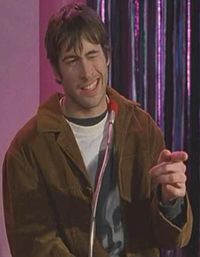Howard Levitt, counsel to Lang Michener LLP, an employment lawyer who practises in seven Canadian provinces and author of The Law of Dismissal for Human Resources Professionals, writes that he is a McDonald’s convert.
.jpg) Levitt says that rather then succumb to the human rights "police," McDonald’s fought back to protect the right of Canadians to eat safe food. It and Canadians lost.
Levitt says that rather then succumb to the human rights "police," McDonald’s fought back to protect the right of Canadians to eat safe food. It and Canadians lost.
What Levitt learned from this decision is McDonald’s is a stickler for cleanliness: Employees must wash their hands after every break, after cleaning their work area, before entering the production area, before putting on gloves, after shaking hands, after touching a door handle and on it goes. It is so focused on being sanitary that apart from all the previously mentioned instances, a bell goes off every hour, telling employees to wash their hands.
Besides good corporate citizenry, this reflects the law. It ensured McDonalds complied with the B.C. Health Act and the B.C. Centre for Disease Control’s Food Protection Guidelines.
But Beena Dat could not comply. A skin condition prevented her from wearing gloves or regularly washing her hands. She went on disability and unsuccessfully attempted to return to work three separate times. Her specialist, Dr. Kit-son, opined he had no doubt, if she attempted to return to work, her "hands would disintegrate in a week." She could not return to any job involving exposure to soap and water, in his view, thereby eliminating "restaurant work of any kind."
Dat complained to the B.C. Human Rights Tribunal who appointed Judy Parrack to decide the case, who decided Mc-Donald’s should have cross-examined the specialist rather than taking his medical report at face value.
She also considered whether it was possible pieces of different jobs could have been extracted to create a position Ms. Dat could perform without frequently having to wash her hands.
This is despite Ms. Parrack’s acknowledging all jobs at Mc-Donald’s require handwashing and, depending on how busy a section is, any position might quickly take over for another.
Notably, Ms. Parrack found McDonald’s liable for not attempting to construct such a position and awarded $50,000 in damages, including $25,000 for injury to Ms. Dat’s "dignity, feelings and self-respect."
 Worst of all, McDonald’s was ordered to "cease the discriminatory conduct or similar conduct and refrain from committing such conduct in the future." One might think consumer safety should supercede the right of an employee with unclean hands!
Worst of all, McDonald’s was ordered to "cease the discriminatory conduct or similar conduct and refrain from committing such conduct in the future." One might think consumer safety should supercede the right of an employee with unclean hands!
A colleague says maybe the judge should eat at McDonald’s and be served only with dirty hands.
A Jason Lee stink palm pretzel, perhaps?
